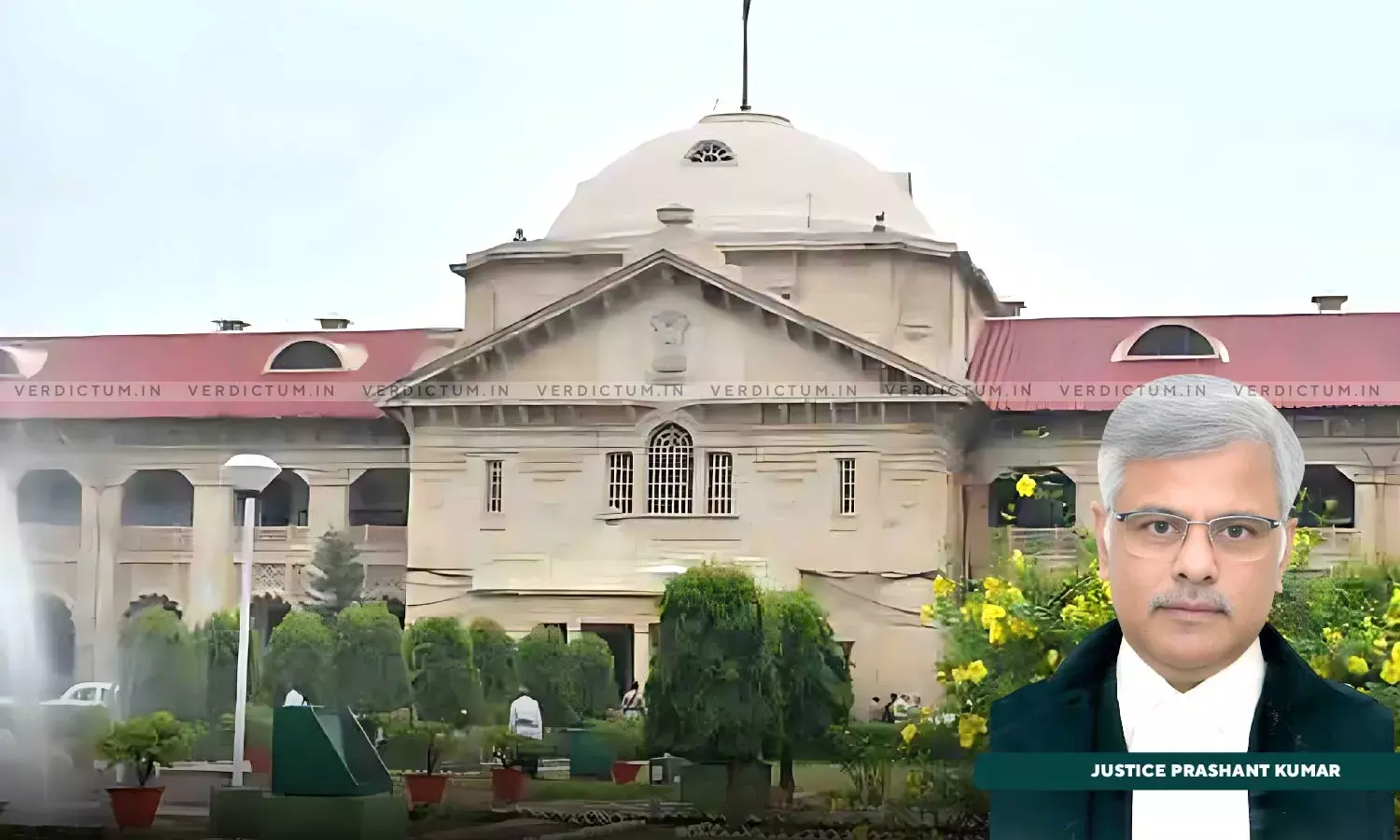Employee Cannot Object When Transfer Is Made On Account Of Administrative Exigencies: Allahabad High Court

The Allahabad High Court in a writ petition filed by an employee of a bank has held that when the transfer orders are made on account of administrative exigencies, no objection of any employee can be entertained. The said employee had challenged his transfer order from Kanpur to Hardoi.
A Single Bench of Justice Prashant Kumar observed, “… when the transfer orders are made on account of administrative exigencies, no objection of any employee can be entertained. When the employee had joined the service, he knew it well that he has joined a transferable job. No employee can claim lien of a particular place. Even the office bearers of the Union are subjected to transfer, if the same is made in administrative exigency and not being made to vindicate their activism or the transfer is made in malafide manner.”
Senior Advocate Ashutosh Sharma appeared on behalf of the petitioners while Advocate Sunil Kumar Mishra appeared on behalf of the respondents.
Facts of the Case -
The petitioner no.1 was an Employees’ Union and petitioner no. 2 was an employee of the bank and an office bearer of the said Union. The employee had joined the bank in the clerical cadre and was first posted at Hardoi and after completing two years, he was transferred to Kaushalpuri Branch in District-Kanpur. While being posted at Kanpur, he became the General Secretary of the Union and was transferred from Kaushalpuri Branch to G.T.B. Marg Branch in the same district i.e., Kanpur. Immediately on his transfer, a notice for strike, under Section 20 of ‘The Industrial Disputes Act, 1947’, was given by the Union, which culminated into conciliation proceeding by the Conciliation Officer. The Management of the Bank appeared in the conciliation proceeding wherein they agreed to consider the demand of the Union raised before the competent authority under the Act relating to transfer of the petitioner no.2 and modified the transfer order and posted him at the Main Branch of the bank at Kanpur.
Thereafter, the bank transferred petitioner no.2 from Kanpur to Mallawan Branch in District-Hardoi and immediately, on the same day, again a strike notice was given by the Union. The notice was issued by the Assistant Labour Commissioner (Central), Kanpur to the bank for reconciliation and in addition to this proceeding, petitioner no.2 against his transfer, had filed a complaint with respondent no.1 i.e., Central Government Industrial Tribunal (Labour Court), Kanpur invoking the provisions of Section 33A of the Act. This complaint was made on the ground that mandatory provisions of paragraph 535 of Sastry Award (dated 16.6.1971) was not followed and sought protection under Section 33 (3) of the Act. He further alleged that his transfer was done with malafide intention and bad motive. Along with this complaint, there was an application for interim relief, which was decided by respondent no.1 cancelling transfer order giving liberty to the Management of Bank to give posting to petitioner no.2 at a branch nearer to G.T.B. Marg Branch in District-Kanpur. Aggrieved by such an order passed, the employee was before the High Court.
The High Court after hearing the contentions of the counsel said, “A plain reading of the SastryAward lays down that whenever transfer of any office bearers are made, a cry for victimization is also made by the Union. These allegations are easily made but are not sustainable. Transfers are necessary for exigencies of the administration. Transfers are normal incidents of working of the bank and they must be left to the discretion of those who are guided with policy of bank and manage its affairs. Whenever office bearer of a Trade Union is transferred, a suspicion naturally arises and consequences thereof would be industrial dispute and to avoid such disputes certain steps were laid down in the Sastry Award.”
The Court noted that the petitioner could not place any document or evidence to show that the transfer was made in malafide manner just to vindicate activism of petitioner no.2 and on the contrary, it was petitioner no.2 misusing his post as General Secretary of the Union in order to push his personal agenda, had filed a number of cases/complaints before different forums which is just to put pressure on the respondents to ensure that his transfer is set aside.
“As General Secretary of Trade Union, he is supposed to be the voice of the employees and should not use his post for his personal gain. … to stop one transfer of petitioner no.2, the entire Trade Union as well as petitioner no.2 himself has filed 4-5 different proceedings. Such act of petitioner no.2 is nothing but pure abuse of process of law, for his personal reasons. In fact, to stop transfer of an employee, a notice for strike was called by the petitioner-Union, which could cripple the banking system of respondent-Bank”, also said the Court.
The Court further observed that the act of the petitioners was in no way justified and ended up in multiplicity of litigations in various forums and that no trade union activist can use his position to push his personal agenda. It said that the entire action of the petitioners was nothing but pure abuse of process of law.
“It is a trite law that the Court should not interfere with the transfer orders, which are made in administrative reasons, and no Court should interfere unless the transfer is malafide or is made in violation of any statutory provisions. … The wheels of administration should be allowed to run smoothly and the Courts or Tribunals are not expected to interdict the working of the administrative system”, added the Court.
Accordingly, the High Court dismissed the writ petition.
Cause Title- United Forum of We Bankers and Another v. Central Government Industrial Tribunal and Others (Neutral Citation: 2023:AHC:209638)


